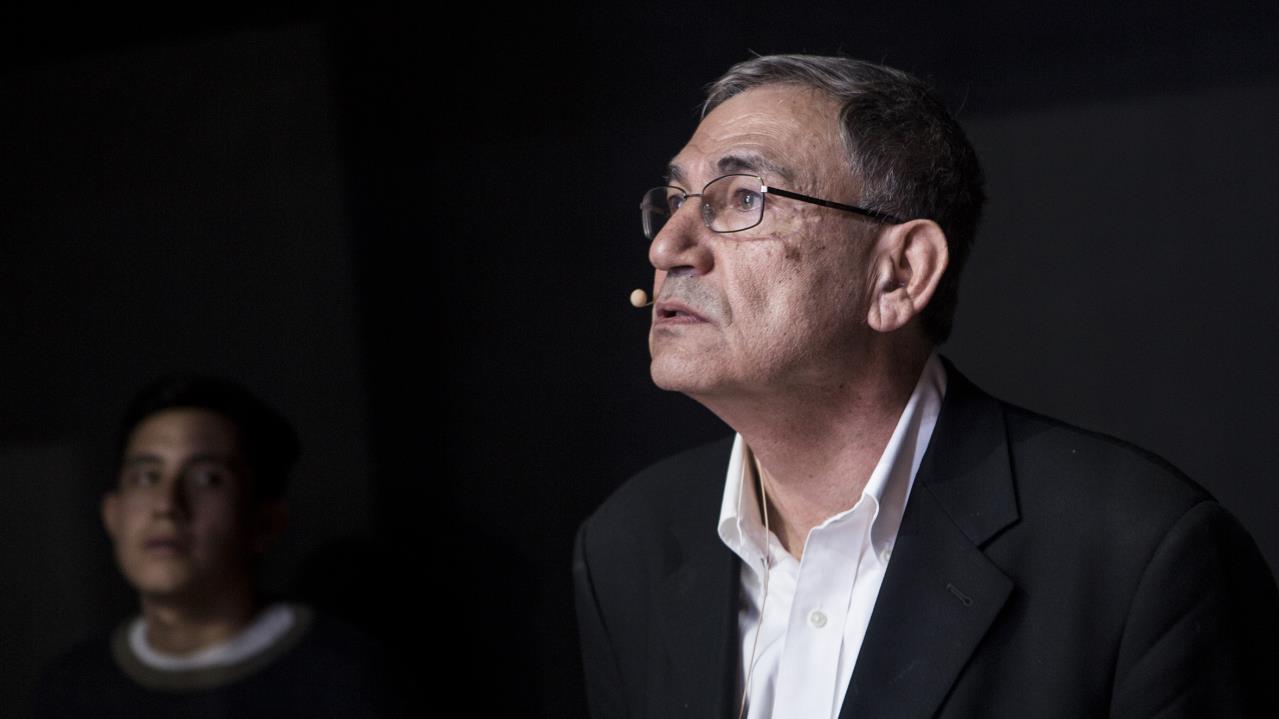
A huge audience packed in to hear the Nobel Prize winner talk about his writing and inspirations, in particular his latest book, The Red-Haired Woman which focusses on the intense relationship between father and son well-diggers. The use of well-diggers, a disappearing trade, in the story is a reflection that Orhan sees himself more as a historian than a novelist. He explained how he would tour Istanbul for people and areas not known to him; street vendors, tough neighbourhoods and night-life to document, record and share an Istanbul that is changing rapidly. Orhan explained how he sees himself as a repressed painter and expresses this by being a visual writer. He always imagines the story as a picture first and then describes the picture in words so that the reader may also visualise the image.
With his books being now translated in to 64 languages, Pamuk explained how the hardest one was in to his native Turkish, mainly because he had no friends in the business, no network of people who could help so he struggled to get his first book published.
Pamuk concluded a fascinating insight into his work by talking about the importance of literature in connecting people, "Cultures may be different but the human heart is the same, everything is translatable" and through translation we build bridges.